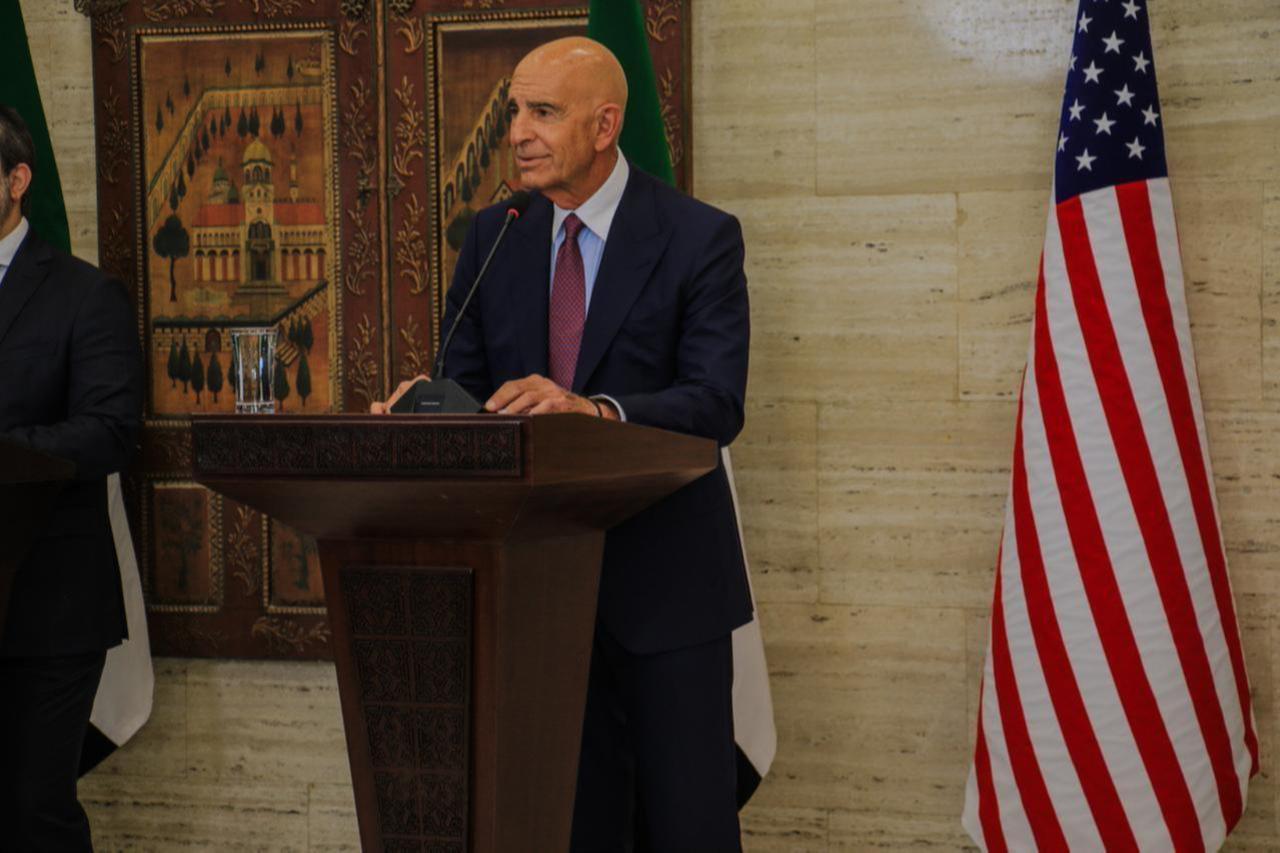
Türkiye has emerged as a central pillar of the Trump administration's Middle East strategy, with U.S. Ambassador Tom Barrack crediting Ankara's diplomatic leverage and regional influence as essential to recent breakthroughs on Gaza and Syria on Saturday.
Speaking at the 21st International Institute for Strategic Studies Manama Dialogue, Barrack, who serves as both ambassador to Türkiye and special envoy for Syria, outlined how the administration is abandoning traditional diplomatic approaches in favor of what he called a process of going from "pay phone to Starlink" that relies heavily on regional powers taking ownership of Middle East stability.
"The ceasefire in Gaza would not have happened without Türkiye," Barrack said, noting that President Donald Trump acknowledged President Recep Tayyip Erdogan four times on stage for his role in securing the agreement. He said Türkiye's unique relationship with Hamas, which Ankara does not designate as a terrorist organization, allowed it to push final holdouts toward ceasefire.
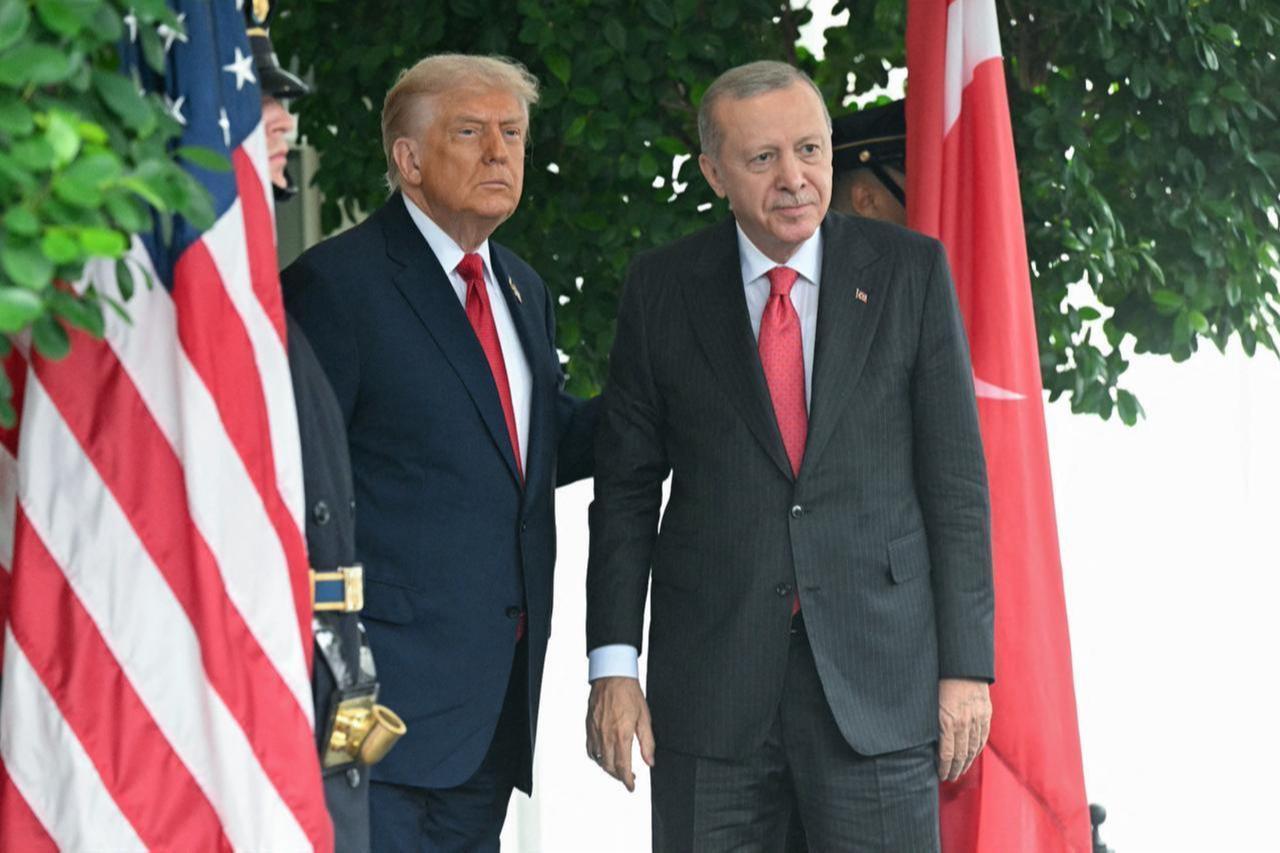
Barrack highlighted deepening cooperation between the two NATO allies, pointing to recent high-level engagement that has produced discussions on major defense agreements. He said Trump and Erdogan recently held their 11th meeting, addressing F-35s, F-16s, S-400 missile systems and a $100 billion Boeing contract.
The ambassador described Türkiye as America's largest NATO ally outside the United States and praised its stable governance structure as a non-Arab Muslim country. He said this unique position makes Türkiye indispensable to regional transformation efforts.
"Don't confuse efforts with results," Barrack said, describing Trump's core directive for Middle East policy. "For this man means take bold action. Bold action will create momentum and momentum will bypass the decades and decades of rust we've had on diplomatic cadence in the Middle East."
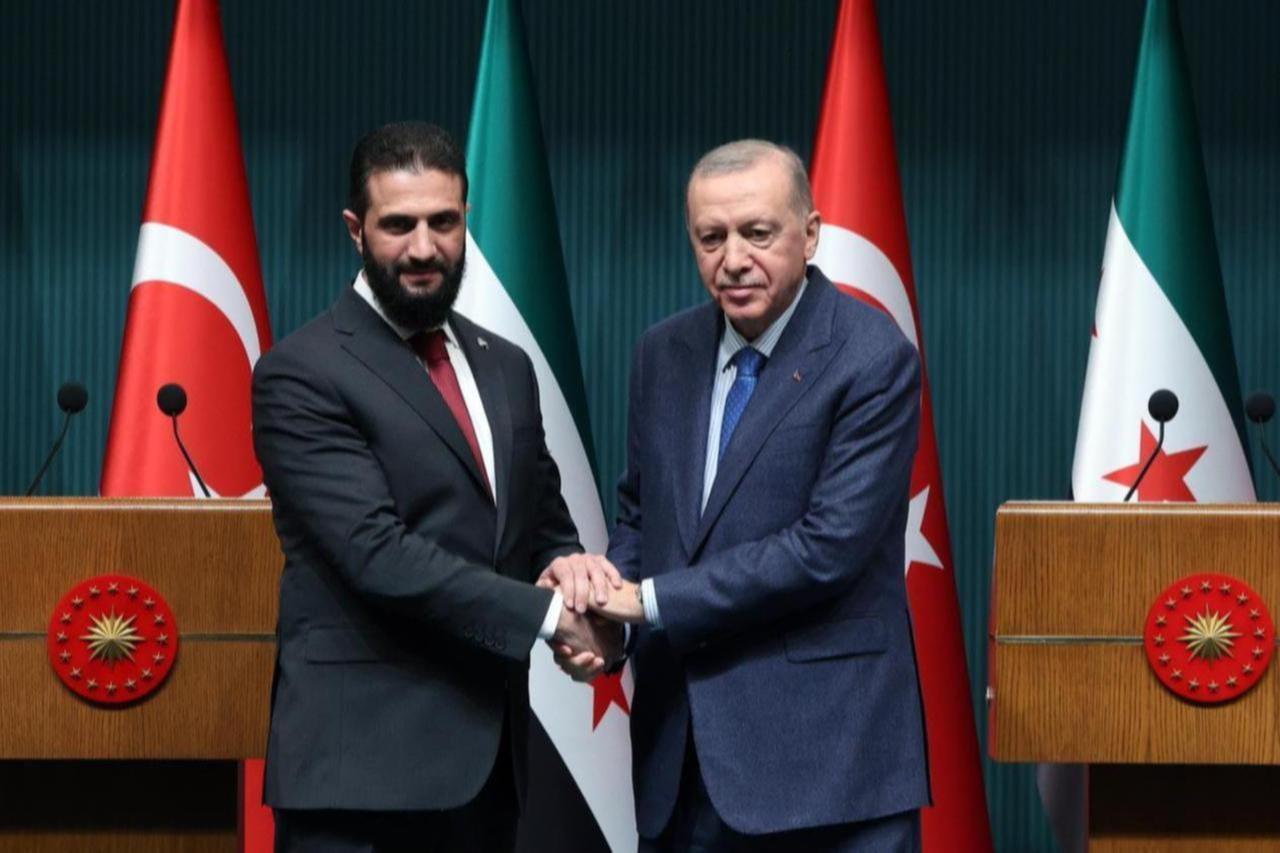
Barrack pointed to Türkiye's critical role in Syria's transition following Bashar al-Assad's departure on Dec. 8, saying cooperation between Ankara and Damascus is progressing smoothly despite complex security concerns. He emphasized that 3.5 million Syrian refugees in Türkiye who speak both Arabic and Turkish represent significant economic potential for reconstruction.
The ambassador said Syria is conducting its fifth round of border discussions with Israel and could be moving toward normalization, potentially reshaping regional alignments. He described the new Syrian government's progress over 11 months as remarkable, noting they have addressed eight criteria established by Secretary of State Marco Rubio.
"There is no congestion between Syria and Türkiye," Barrack said, dismissing suggestions of fundamental disputes over Syria's future governance.
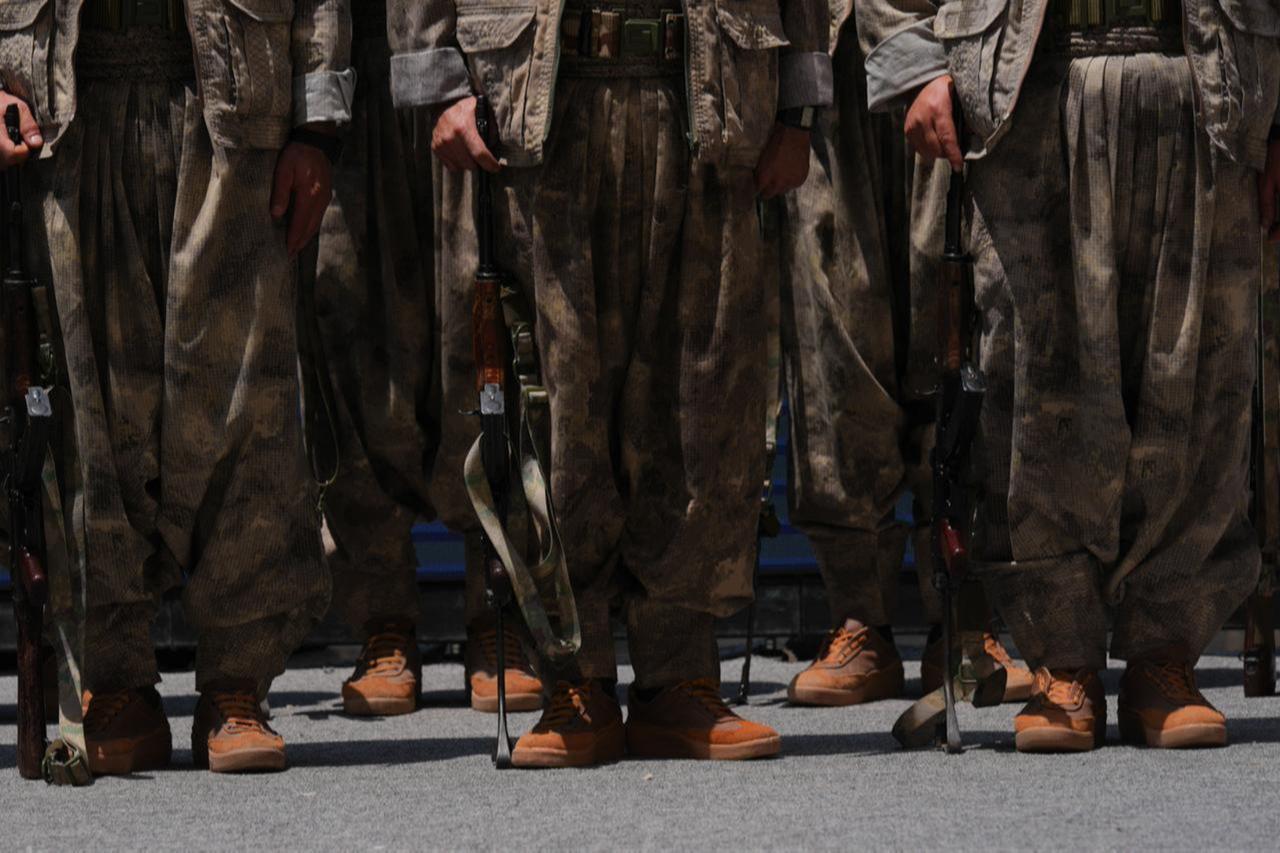
While praising Turkish-Syrian cooperation, Barrack acknowledged that the terror group PKK remains Türkiye's primary security concern, noting that 40,000 people have died in related violence. He said discussions between Damascus and the SDF regarding integration are "going amazingly well" and that both sides are working from a March 10 agreement.
The ambassador predicted that if regional momentum continues, Türkiye and Israel could eventually reach a trade agreement, comparing potential rapprochement to recent progress between Armenia and Azerbaijan. He said resolving terror group related security concerns is essential to broader regional stability.
"Türkiye and Israel will not be at war with each other," Barrack said. "In my opinion, it's not going to happen. And you're going to get alignment from the Caspian Sea to the Mediterranean."
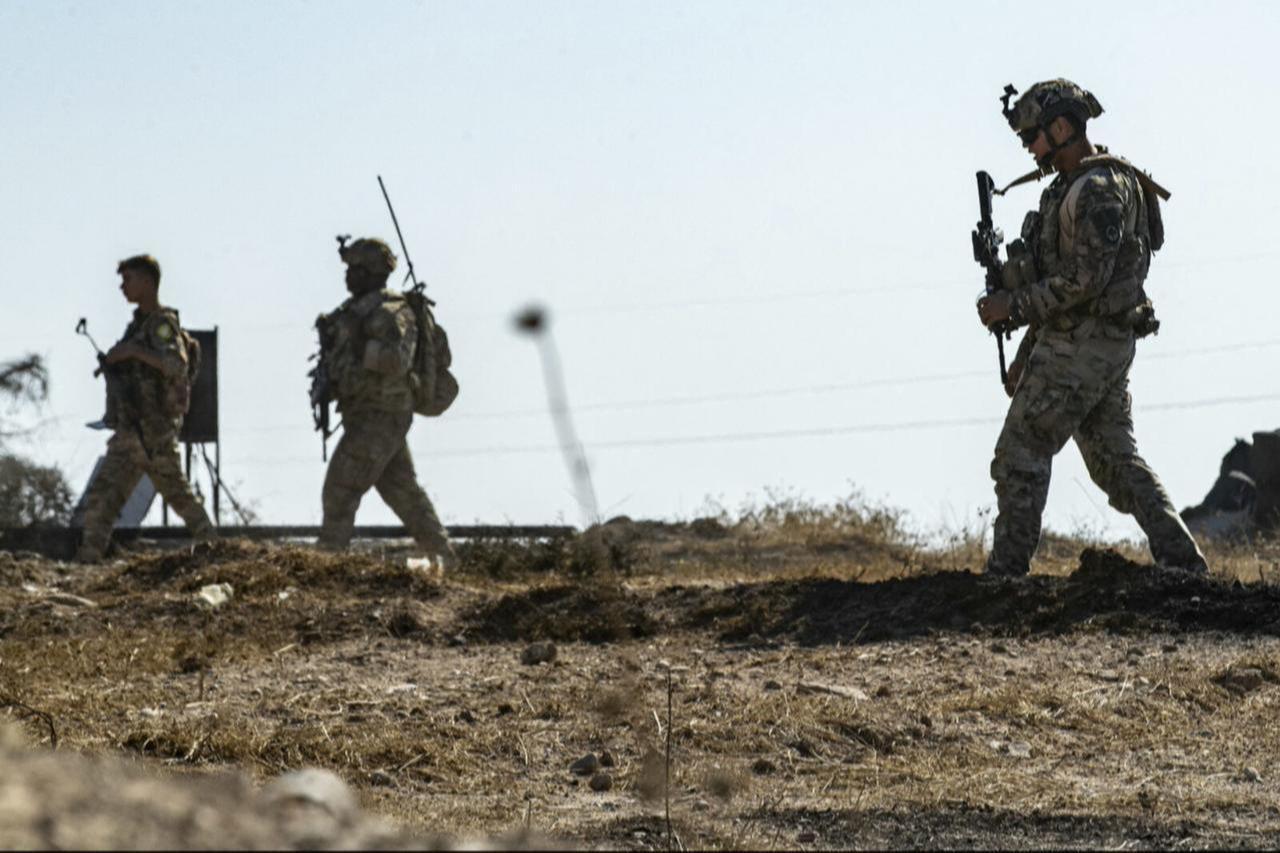
Barrack emphasized that Trump's Middle East strategy centers on regional powers taking responsibility for their own security while the U.S. provides diplomatic leadership without military intervention or major financial investment. He said the administration has made clear it will not deploy American troops or fund reconstruction efforts directly.
The ambassador delivered particularly blunt criticism of Lebanon, calling it a failed state dominated by Hezbollah while urging Lebanese leaders to open direct negotiations with Israel. He warned that continued political paralysis risks further Israeli military action.
Trump's approach, according to Barrack, seeks to bypass the failures of post-World War II American policy in the region. He traced ongoing instability to the 1916 Sykes-Picot Agreement and colonial-era arrangements that imposed nation-state boundaries on tribal societies, citing 27 U.S.-backed regime changes as consistent failures.
The ambassador argued that the Middle East possesses $9 trillion in investable capital and controls 30 percent of global resources, making continued conflict economically irrational. He said regional prosperity requires abandoning historical grievances and embracing pragmatic cooperation through frameworks like the Abraham Accords.
When pressed on whether a two-state solution remains U.S. policy for Israeli-Palestinian peace, Barrack said the immediate priority is ending violence and providing humanitarian assistance. He indicated that questions of Palestinian statehood versus other arrangements would evolve as conditions stabilize.